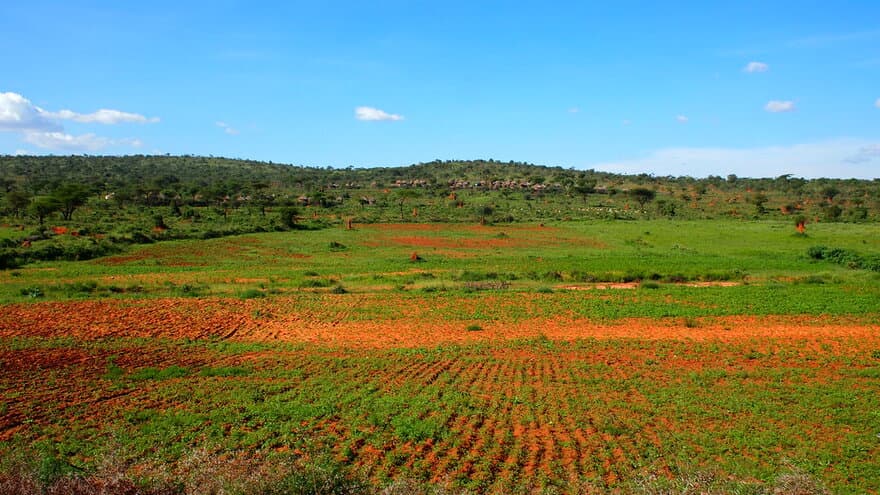In his doctoral research, Yonas Berhanu identified agricultural technologies that increase food production and farmers' incomes, make agriculture less vulnerable to climate change and contribute to reducing greenhouse gas emissions from agriculture.
For Ethiopia to successfully tackle current food security, poverty and climate change challenges, locally specific, affordable and climate-smart practices hold the key.
Locally suitable and sustainable farming
In this doctoral research, locally-suited and sustainable technologies and practices were identified that can improve food and feed production, while reducing vulnerability and contributing to the mitigation of greenhouse gas emissions. These low-cost, low-risk technologies include:
- Use of manure (for dryland farming), frankincense and farm-grown forages
- Newly adapted technologies such as the application of small amounts of fertilizer (known as micro-dosing) combined with soaking seeds in water prior to sowing (known as seed priming).
Manure increased crop yields by up to 51% in the drylands
The study demonstrates that the application of cattle manure can increase farm productivity in the dryland environments. Applying manure alone yielded up to 51% increase in grain yield compared to non-use of nutrient inputs.
45% more maize using combined technologies
A combination of seed priming with micro-dosing increased maize yield by up to 45% compared to the recommended practice.
These technologies can help increase production and reduce vulnerability, especially for risk averse, resource-poor farmers and agro-pastoralists, who have limited access to nutrient inputs and are cash-constrained.
Low-cost, effective and profitable
The technologies explored in this study are low-cost, productive and profitable, and can be easily adapted to the agro-ecological and socio-economic settings of southern Ethiopia. They can thus serve as an entry point for the sustainable development of local farming systems and livelihoods.
“I believe, if implemented, the technologies studied can lead to major changes to reduce food insecurity and poverty in southern Ethiopia, one of the poorest areas of the country” says Yonas, who has a background in Forestry, Range Ecology and Management from Hawassa, Ethiopia.
The study contributes to the growing national and global knowledge base on context-specific sustainable agricultural development options that could lead to a sustainable future at local and national scales.
__________________
Yonas Berhanu will defend his thesis 'Effects of climate-smart agriculture on agricultural production, GHG emissions and livelihoods in agro-pastoral and mixed farming systems in southern Ethiopia' on 30 June 2020. See the event web page for details.
Fakta
Yonas Berhanu
PhD Fellow, Noragric
yonas.berhanu.jagisso@nmbu.no

|
This research is part of the Norad-funded NORHED project: Research and capacity building in climate smart agriculture in the Horn of Africa. “Research and academic capacity building in education and research on climate smart agriculture to increase food production and farmer income, make agriculture less vulnerable to climate change and contribute to reducing Green House Gas emissions from agriculture” [Source: Norad].  |
Norwegian title of thesis:
Effekt av klima-smart landbruk på landbruksproduksjon, utslipp av klimagasser, og levevilkår i agro-pastorale og kombinerte jord-og husdyrproduksjonssystemer i det sørlige Etiopia
